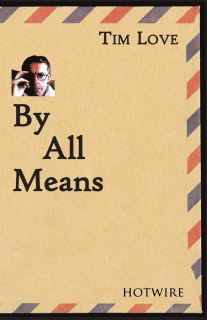When Disney animations were hand-made, the master artists drew the key frames (the "keys"), leaving assistants to complete the frames in between (a job they called "tweening"). If apprentice artists could tween, why not knowledgeable audiences? Poetry has such an audience. But there are consequences to sacking the tweeners -
- Suppose people tween differently? As long as the distance between keys isn't large, there shouldn't be problems. The keys act as checkpoints so that people can resynchronise if they feel they need to
- If the distances become too large there might be a loss of narrative. Consequently there's a tendency for each key scene becomes more self-contained. The keys become a series of disconnected tableaux - a triptych, a gallery.
A common way of tweening in literature is to supply backstory, motivations, or justifications - in short, telling rather than showing. The amount of this varies according to the style. In the TV series "The Wire" there's little "telling"; the writers decided that all sound had to be sourced - no voice-overs and no background mood music. All music had to come from a car radio, an open tenement window, etc. Some poetry has a similarly purist approach, using juxtaposed images to keep "telling" to a minimum. The risk is that such poetry becomes a game of charades, a dumbed-down mime-show. Complex arguments are difficult to show, concepts like fate harder still.
Sometimes the "telling" (the interpretation, the moral) is only at the end, though this is rather unfashionable nowadays. One way to convey the information without despoiling artistic purity is to employ metalepsis, making it hard to distinguish between the "show" and "tell" elements. A cinematic example would be for there to be a voice-over scene during which a character walks into the frame speaking the voice-over.
 Another, more reader-friendly approach is that adopted by the Rupert annuals. The Rupert Bear stories began as a newspaper cartoon strip, but soon became better known for the annuals. The page layout supports several reading modes. Each page has the story title at the top. Beneath that there's a page subtitle. Young children can follow the pictures. Each picture has a rhyming couplet beneath it - e.g. He meets Pauline, and straight away/ He tells her all he has to say. At the foot of the page is prose - Rupert and Snuffy run towards the tent. Pauline is the first Guide he meets and he pours out his story. People can read the verse, the prose or both.
Another, more reader-friendly approach is that adopted by the Rupert annuals. The Rupert Bear stories began as a newspaper cartoon strip, but soon became better known for the annuals. The page layout supports several reading modes. Each page has the story title at the top. Beneath that there's a page subtitle. Young children can follow the pictures. Each picture has a rhyming couplet beneath it - e.g. He meets Pauline, and straight away/ He tells her all he has to say. At the foot of the page is prose - Rupert and Snuffy run towards the tent. Pauline is the first Guide he meets and he pours out his story. People can read the verse, the prose or both.
An entertaining exercise is to take a poem (by Larkin, say, The Whitsun Weddings) and give it the Rupert treatment, pictorialising the imagery (at 1.20pm on a sunny day, a quarter-full train with all its windows open leaves a city station), adding sub-titles to describe how none thought of "how their lives would all contain this hour". Trying the same exercise with Larkin's "Toads" would yield a very differently proportioned layout. I suspect that with some poets their poems would all have the same proportion of text to pictures.
 My story collection "By All Means" (ISBN 978-0-9570984-9-7), published by Nine Arches Press, is on sale from
My story collection "By All Means" (ISBN 978-0-9570984-9-7), published by Nine Arches Press, is on sale from  My poetry pamphlet "Moving Parts" (ISBN 978-1-905939-59-6) is out now, on sale at the
My poetry pamphlet "Moving Parts" (ISBN 978-1-905939-59-6) is out now, on sale at the 